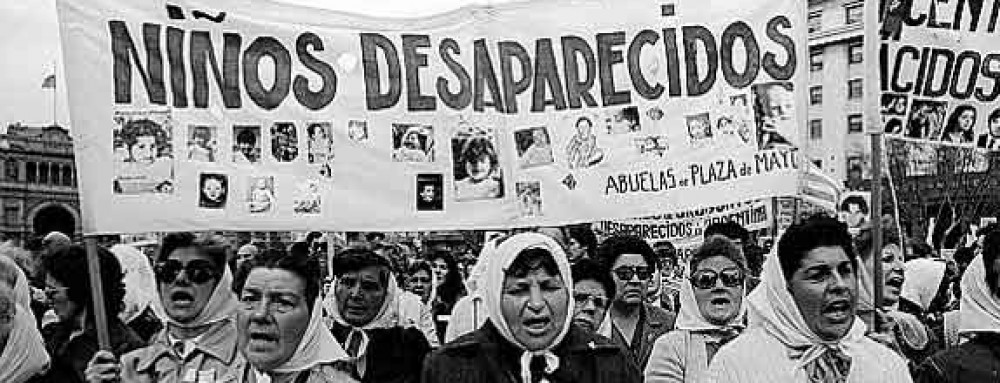
From Virrey Cevalles earlier today. These people were disappeared from nearby neighborhoods but weren’t taken to this specific site. I found it heartening that these people were honored even in places they didn’t necessarily step into.
A lot of connections can be made between Argentine and American histories. Though the events themselves weren’t the same, there were repercussions impacting generations of families and the structure of society in general. One difference, though, is the effort going into pursuing justice on a more national level. When Néstor Kirchner was elected in 2003, he made strides to prosecute those responsible for human rights violations during the dictatorship. He annulled legislation that prevented the prosecution of military personnel. That step alone is huge in bringing justice to families of the disappeared and victims who were imprisoned/tortured. The United States never saw trials convicting slave owners of their crimes against humanity – and now it’s too late for that specific issue. But we see similar behavior when it comes to issues like police brutality against black and brown people. It seems much more difficult to convict such a police officer. Another big discussion in the United States is around reparations, which Argentina has been able to provide for children or grandchildren of the disappeared. We know that trauma is generational, and impacts every aspect of life.
One thing we’ve learned is there is still a culture of silence in parts of Argentine society. “What’s worse than not wanting to know is wanting not to know.” This idea permeates American culture and is one of the greater barriers to social change. Younger generations seem to be pushing to break this, but it is difficult when people are advocating to not teach schoolchildren basic American history. We must know in order to not repeat the past. Nunca Mas.
Argentine political culture is driven by the past and its horrors. It’s heartening to see and meet so many people dedicating their time and lives to change. The United States needs to face its past in totality.

I agree! I feel like in many ways the U.S. doesn’t even try to acknowledge its past let alone how it impacts the present